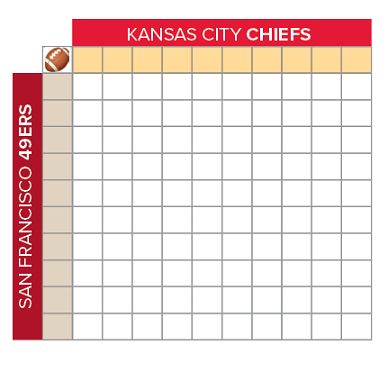Break out the Super Bowl squares.
Now that the February 11, 2024, Super Bowl matchup between the Kansas City Chiefs and San Francisco 49ers is set, many American workplaces will turn to the ubiquitous office pool to generate excitement and build camaraderie over the next two weeks.
The American Gaming Association estimated that 28 million Americans participated in office pools for the Super Bowl in 2023 – up 50 percent from 2022 – with even more anticipated to play this year.
Despite their popularity, those Super Bowl squares can present thorny legal risks for employers who sponsor them, because Super Bowl squares are, by definition, gambling. Whether that gambling is unlawful depends on the jurisdiction and how the pool is operated.
The three basic elements of gambling are consideration, chance, and prize. Generally, most states define gambling or "games of chance" as any contest or scheme where a person risks or provides something of value for the chance of winning a prize where chance cannot be eliminated through skill. In terms of Super Bowl squares, participants blindly purchase one of 100 boxes from a ten-by-ten matrix.

After all 100 boxes are purchased, numbers are assigned across each axis 0 to 9, which represents the last digit of each team's score. At the end of each quarter and/or the game, the entrant whose name is listed in the box that matches with the final digits of the scores for each team wins a prize—generally cash. As such, all three elements (consideration, chance, and prize) are present.
Given that the elements of gambling are present, absent a state exception, it is technically illegal for companies to host an office pool without a license. This is where employee confusion often sets in. Since the U.S. Supreme Court struck down the federal prohibition on sports betting in 2018, 38 states (plus D.C.) have legalized sports betting. Since that time, Americans have legally wagered more than $300 billion on sports. Given the pervasiveness of legal sports betting, most employees (and their employers) assume sports betting in all forms is legal. But it is not.
In fact, Super Bowl squares are illegal in 37 states. And even the states that do permit office pools have different requirements. For example, the state of Washington permits Super bowl squares, but with strict conditions that (1) only one board may be offered; (2) a person or business cannot charge more than $1 per square; and (3) the board must be available for state inspection. Other states like Ohio and Colorado permit office pools so long as the organizer does not make a profit or take a cut of the entry fees.
Federal law may also come into play if an office pool occurs across state lines, particularly if using the Internet for collecting entries and paying prizes. Doing so may violate the Interstate Wire Act of 1961, which states that it is illegal for individuals to engage "in the business of betting or wagering [through the knowing use of] a wire communication for the transmission in interstate or foreign commerce." Thus, any Super Bowl squares pool conducted across state lines could be deemed to violate the Wire Act. The other issue is that many payment processors will reject transactions they believe are related to unlawful gambling.
What Can Employers Do?
To eliminate any confusion, employers may want to use this period before the Super Bowl to remind employees about any policies governing gambling in the workplace and expressly state whether office pools are permissible – and if so – under what circumstances.
Employers that want to sponsor an office pool such as Super Bowl squares (or March Madness brackets later this year) should consider free-to-play options to eliminate the consideration element of gambling. Employers may also want to offer non-cash prizes like company apparel to minimize tax consequences of winning cash.
Employers that are set on hosting pools for real money should try to keep each pool within a single state rather than set up cross-border pools. Also, the organizer should not take a cut of any of the entry fees. Keeping the entry fees minimal, such as $1 per square, also helps to reduce any hard feelings from those who do not win.
Additionally, now is a good time for employers to revisit Internet and mobile device use polices given the proliferation of mobile gambling. Employees in 29 states (plus D.C.) have 24/7 access to gambling on their mobile devices, which can present its own issues of distraction and time wasting in the workplace.
Despite the risks, office pools can be useful tools to build camaraderie and bring some entertainment into the workplace. Before sponsoring Super Bowl squares, however, employers should consult with counsel to ensure compliance with local, state, and federal laws.
The content of this article is intended to provide a general guide to the subject matter. Specialist advice should be sought about your specific circumstances.

